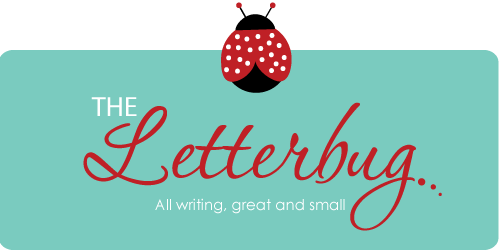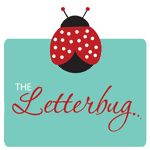 Is it just me, or do high school English classes slide further and further away with every year? Thank goodness I have "Grammar on the Porch". Good old Grammar loves to visit The Letterbug from time to time for a nice cup of tea and a natter about the English language. She knows we know - really she does. But just in case...
Is it just me, or do high school English classes slide further and further away with every year? Thank goodness I have "Grammar on the Porch". Good old Grammar loves to visit The Letterbug from time to time for a nice cup of tea and a natter about the English language. She knows we know - really she does. But just in case... Image kindly supplied by Toni Grote - visit http://www.artisttonigrote.blogspot.com/ to see more of her beautiful artwork
6 tips on using apostrophes correctly
When Grammar was a young lass she loved bees – not bee’s or bees’. The reason for this was that even as a whipper snapper, Grammar knew how to use an apostrophe correctly. Over the years, however, she has seen many an unsuspecting writer use them in all the wrong places. Here are 6 tips from Grammar to help you use the apostrophe correctly.
1. Use an apostrophe to show the omission of letters in a contraction:
· I'm (I am)
· you're (you are)
· he's (he is)
· she's (she is)
· it's* (it is)
· we're (we are)
· they're (they are)
· isn't (is not)
· aren't (are not)
· can't (cannot)
· don't (do not)
· who's (who is)
· won't (will not)
Grammar’s top tip: Be careful to place the apostrophe where the letter or letters have been omitted, which is not always the same place where the two words have been joined.
* See Grammar’s earlier post about “Its vs It’s for more info on this tricky little aberration.
2. Use an apostrophe with -s for possessives of singular nouns
Use an apostrophe plus -s to show the possessive form of a singular noun, even if that singular noun already ends in -s:
· Arthur's hearing aid
· my daughter's lovely teacake
· Banjo Patterson's poetry
· Rob Thomas's sexy voice
· today's horoscope
· the boss's office
· Bridget Jones's diary
· David Beckham's hot bod
3. Use an apostrophe without -s for possessives of most plural nouns:
To form the possessive of a plural noun that already ends in -s, add an apostrophe:
· the girls' horses(the horses belonging to the girls)
· the witches' cauldrons(the cauldrons belonging to the witches)
· the Johnsons' garden gnomes (the garden gnomes belonging to the Johnsons)
If the plural noun does not end in -s, add an apostrophe plus -s:
· the women's toilets(the toilets belonging to the women)
· the children's toys (the toys belonging to the children)
· the men's golf day (the golf day belonging to the men)
4. Use an apostrophe with -s when two or more nouns possess the same thing:
When two or more nouns possess the same thing, add an apostrophe plus -s to the last noun listed:
· Ben and Jerry's Choc Chip Ice Cream
· Grammar and Grandpa’s front porch (Grammar and Grandpa share the same front porch)
When two or more nouns separately possess something, add an apostrophe to each noun listed:
· Daisy's and Ivy's iPods (Each girl has her own iPod.)
· Gerald’s and Henry’s motorcycles (Each man has his own motorcycle.)
5. Do Not Use an Apostrophe with Possessive Pronouns:
Possessive pronouns already show ownership, it's* not necessary to add an apostrophe:
· yours
· his
· hers
· its*
· ours
· theirs
However, we do add an apostrophe plus -s to form the possessive of some indefinite pronouns:
· anybody's game
· one's own ability
· somebody's luggage
* See Grammar’s earlier post about “Its vs It’s for more info on this tricky little aberration.
6. In general, do not use an apostrophe to Form a plural:
As a general rule, use only an -s (or an -es) without an apostrophe to form the plurals of nouns--including dates, acronyms, and family names:
· Financial Markets plummeted in early 2009.
· The insights offered by Grammars everywhere make them very important people indeed.
· The Walters have sold all of their CDs on Ebay.
To avoid confusion, we may occasionally need to use apostrophes to indicate the plural forms of certain letters and expressions that are not commonly found in the plural:
· Mind your p's and q's.
· Let's accept the offer without any if's, but’s, or maybe’s.
Well then, who knew that one little punctuation mark would require so much consideration?! Grammar has faith that you will treat our little friend the apostrophe with great care from now on though.
And did I hear somebody say "Apple Turnovers for afternoon tea"? Gracious, I hope so!






No comments:
Post a Comment